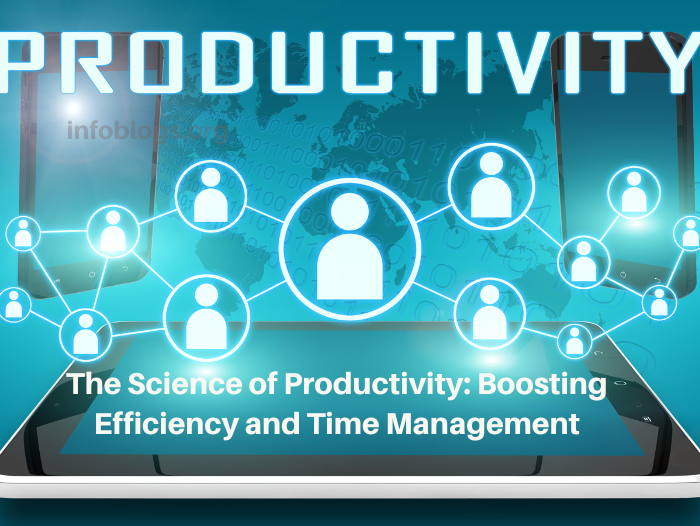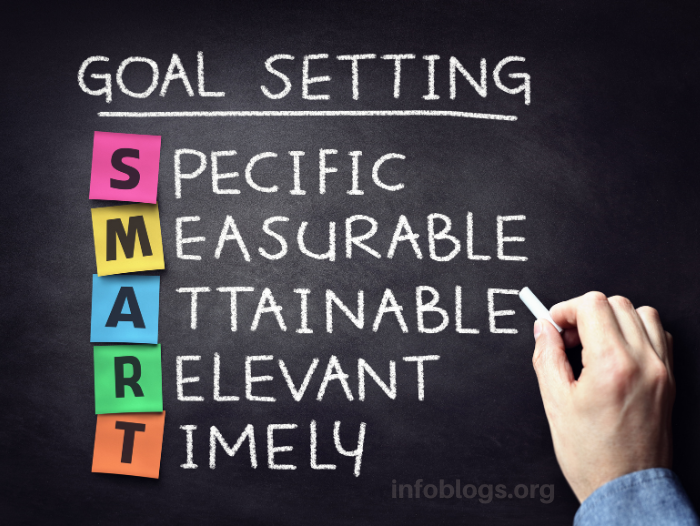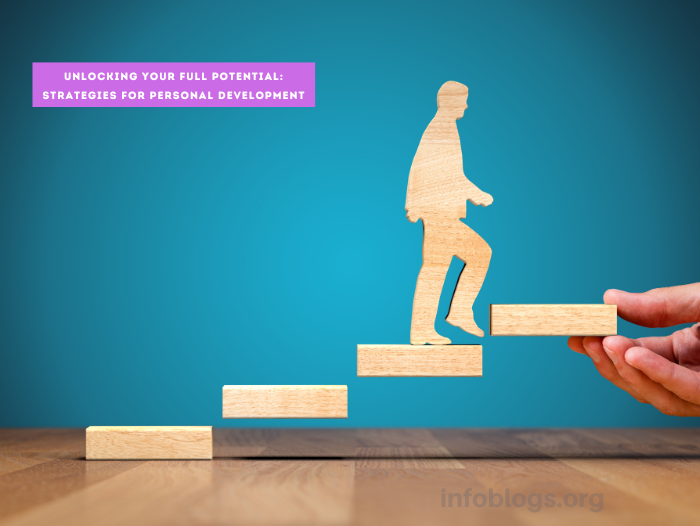
May 30, 2023 | Personal Development
This article delves into the science of productivity and offers practical advice for boosting efficiency and time management skills.
In order to achieve our goals and maintain a healthy work-life balance in today's fast-paced world, it is essential to be productive and manage our time effectively. Luckily, productivity is not solely dependent on willpower or luck; it is a science that can be comprehended and utilized. By utilizing strategies supported by evidence, we can increase our efficiency, optimize our time management, and accomplish more while reducing stress.
Understand Your Biological Rhythms:
The internal body clock, also known as biological rhythms, has an impact on our productivity. It is important to observe the natural highs and lows of energy during the day. Recognize the most efficient periods and plan essential tasks accordingly. By coordinating your actions with your biological rhythms, you can enhance your performance and productivity.
Prioritize and Focus on High-Value Tasks:
To achieve effective productivity, it is important to prioritize tasks. Identify the ones that hold the most value and are aligned with your objectives. Start by dedicating your time and energy to these tasks. Employ strategies like the Urgent-Important Matrix or Pomodoro Technique to effectively structure and prioritize your work. By concentrating on high-value tasks, you can increase your impact and attain better outcomes.
Utilize Time Blocking:
The method of time blocking involves assigning fixed time slots for various tasks or pursuits. Devote concentrated intervals for undisturbed deep work. Plan intervals for breaks and leisure to rejuvenate. By intentionally regulating your time using time blocking, you establish organization, minimize procrastination, and enhance productivity in general.
Practice Single-Tasking:
Although many people believe that multitasking is effective, it can actually reduce productivity. The human brain is not built for multitasking and performs better when focusing on one task at a time. By practicing single-tasking, you can improve your concentration, work more efficiently, and produce higher-quality results. To do this, dedicate your attention to one task before moving on to the next.
Leverage Technology and Automation:
Maximize your productivity by utilizing technology and automation. Organize your work and deadlines using productivity apps, task management tools, and digital calendars. Save time for more important tasks by automating repetitive ones. Take advantage of productivity-enhancing tools and leverage technology to boost your efficiency.
Take Regular Breaks:
It is crucial to take frequent breaks to sustain efficiency and avoid exhaustion. Research has indicated that taking brief pauses can renew concentration, boost ingenuity, and improve overall output. Integrate short intervals into your work schedule and engage in activities like stretching, walking, or meditation to revitalize your mental and physical state.
Optimize Your Environment:
Productivity is greatly influenced by the environment you work in. To optimize your focus and reduce distractions, it's important to create a workspace that supports you. This can be achieved by keeping your area tidy, adjusting lighting and temperature for comfort, and avoiding interruptions from coworkers or family members. By cultivating a conducive environment, you'll be able to concentrate better and achieve greater productivity.
Practice Effective Time Management Techniques:
Productivity can be enhanced by utilizing different time management techniques. Among the popular methods are the “Eat That Frog” approach, where you prioritize the most difficult task initially, and the “Two-Minute Rule,” which advises finishing tasks that require less than two minutes without delay. Experiment with various techniques and identify the ones that align with your work style.
Implement Regular Review and Reflection:
Consistently assess your productivity and contemplate your advancement. Analyze your techniques, recognize opportunities for enhancement, and acknowledge your accomplishments. Utilize resources such as performance measurements or individual reflections to obtain understanding into your productivity trends. Consistent evaluation and contemplation enable you to improve your strategy and consistently advance your effectiveness.
Take Care of Your Well-being:
To achieve productivity, one must not only focus on time management but also on personal well-being. It is crucial to prioritize self-care by ensuring adequate sleep, maintaining a healthy diet, and engaging in regular exercise. A work-life balance that includes leisure activities, hobbies, and spending quality time with family and friends should be cultivated. A balanced lifestyle promotes consistent productivity and prevents exhaustion.
Conclusion:
You can achieve enhanced productivity and efficient time management by comprehending your biological rhythms, prioritizing tasks, utilizing time blocking, practicing single-tasking, leveraging technology, taking breaks, optimizing your environment, implementing effective time management techniques, conducting regular reviews, and prioritizing your well-being. This way, you can accomplish more while maintaining a healthy balance in your life through the science of productivity.

May 30, 2023 | Personal Development
Developing emotional intelligence is crucial in fostering and maintaining personal connections. It equips us with the ability to regulate our emotions, comprehend others' feelings, and communicate with sensitivity and kindness. By prioritizing emotional intelligence, we can look forward to enhancing personal relationships and establish more meaningful bonds. This article will delve into the significance of emotional intelligence and offer actionable tips for honing this skill.
Understanding Emotional Intelligence:
The development of emotional intelligence requires the recognition, understanding, and management of our own emotions, as well as the ability to empathize with and respond to the emotions of others. This includes self-awareness, self-regulation, empathy, and social skills. Acknowledging the importance of emotional intelligence is the initial stage towards its cultivation.
Cultivating Self-Awareness:
To develop emotional intelligence, one must first focus on enhancing self-awareness. This involves being mindful of one's own emotions, thoughts, and responses in diverse situations. It is crucial to take time for introspection and contemplation, to comprehend one's triggers, strengths, and areas that need improvement. By increasing self-awareness, individuals can gain a deeper understanding of how their emotions impact their relationships.
Managing Emotions:
To have emotional intelligence means to efficiently handle our emotions. Acquire the ability to identify and control your emotions in a positive manner. Utilize methods like meditation, breathing exercises, or writing to cope with intense feelings. As you enhance your emotional regulation, you will be able to interact with others with compassion and comprehension instead of acting on impulse.
Empathy and Perspective-Taking:
Developing empathy is a crucial aspect of emotional intelligence. It involves making an effort to comprehend the viewpoints and encounters of others. This can be achieved by actively listening, displaying sincere interest, and posing open-ended inquiries. Empathizing with others necessitates putting oneself in their position and acknowledging their emotions. Empathy promotes bonding, confidence, and more meaningful interpersonal connections.
Effective Communication:
To establish and preserve healthy relationships, communication plays a crucial role. One can enhance their communication abilities by articulating their thoughts and feelings confidently, while also being open to differing viewpoints. Utilizing “I” statements to convey one's emotions and requirements without assigning blame is recommended. Practicing active listening, which involves paying attention to both verbal and non-verbal indicators, is also necessary. Stronger emotional bonds are formed through effective communication.
Conflict Resolution and Problem-Solving:
In relationships, it is certain that there will be conflicts. However, by acquiring emotional intelligence, you can gain the ability to handle conflicts efficiently. You can acquire techniques for resolving conflicts positively, like active listening, searching for commonalities, and discovering solutions that benefit everyone. By managing conflicts with empathy, comprehension, and respect for different opinions, you can deal with them. Finally, view problems as chances for growth and teamwork in problem-solving.
Practicing Emotional Regulation:
Regulating emotions during difficult situations is a crucial aspect of emotional intelligence. One should develop the skill of managing stress, frustration, and anger in a constructive manner. Adopting healthy coping mechanisms like exercising, meditating or pursuing hobbies can be helpful. Taking care of oneself is also important for emotional well-being. By mastering the art of regulating emotions, one can interact with others in a more balanced and considerate way.
Building Social Skills:
Developing and nurturing personal relationships requires essential social skills. To enhance these skills, one can practice active listening, empathy, and assertive communication. Additionally, improving the ability to read social cues and adapt to different social situations is crucial. Building rapport, displaying interest in others, and practicing good manners are also important. By building strong social skills, a positive environment for meaningful connections can be created.
Reflecting and Learning from Relationships:
Frequently contemplate your engagements and encounters in your connections. Gain knowledge from favorable and arduous experiences. Recognize trends, abilities, and domains for development. Solicit evaluations from dependable individuals to understand how you can boost your emotional intelligence. Utilize this input to incessantly enhance your relationships.
Cultivating Empathy and Compassion:
Nurture a mentality of empathy and compassion for others by exhibiting random acts of kindness, demonstrating empathy for their challenges, and extending assistance when necessary. Developing empathy and compassion promotes confidence, comprehension, and more profound bonds in interpersonal connections.
Conclusion:
Enhancing personal relationships is a notable benefit of embarking on a lifelong journey to develop emotional intelligence. This can be achieved through various practices such as cultivating self-awareness, regulating emotions, practicing empathy, improving communication, resolving conflicts, building social skills, reflecting on relationships, and fostering empathy and compassion. By investing in the development of emotional intelligence, you can establish meaningful connections with others and improve your overall well-being.

May 30, 2023 | Personal Development
The quest for discovering your passion and purpose in life is a life-changing expedition that can lead to satisfaction, happiness, and a feeling of significance. Once you identify what genuinely sparks your innermost being, you open the door to living a life centered on purpose. This article delves into the steps involved in finding your purpose in life and offers useful techniques to guide you towards creating a life that matches your innermost wishes.
Self-Reflection:
To discover your purpose in life, start by engaging in self-reflection. Dedicate ample time to comprehend your inner self, including your values, interests, and sources of happiness. Challenge yourself with introspective inquiries regarding your aspirations, aptitudes, and the activities that engross you completely. Recollect instances when you felt most content and vibrant. Self-reflection lays the groundwork for identifying your passion and purpose in life.
Explore Your Interests:
Discover your true interests and passions by exploring a diverse range of activities and hobbies. Experiment with new pastimes, enroll in courses, read literature, or participate in charitable initiatives. Maintain an open mind and cultivate a spirit of curiosity. By broadening your perspectives, you enhance the likelihood of discovering something that ignites your enthusiasm.
Identify Your Strengths:
To find your passion, it is helpful to use your strengths. Determine your special skills and capabilities. Which tasks do you excel at without much effort? What do people frequently praise you for? Acknowledge your strengths and contemplate how you can apply them to a fulfilling pursuit. When you match your passion with your strengths, you establish the foundation for a life with purpose.
Follow Your Curiosity:
Be attentive to the things that spark your interest. Your curiosity is like a guide that can direct you towards your true interests. Investigate subjects, fields, or topics that fascinate you. Give yourself the chance to delve more deeply into these areas and pursue your curiosity with eagerness. Your curiosity will inspire you to discover new passions and reveal unexpected opportunities.
Embrace Challenges and Growth:
Exploring your passion might entail venturing beyond your comfort zone and accepting challenges. Dare to take chances and gain knowledge from setbacks on the journey. Often, development occurs when confronted with difficulties. Welcome the unfamiliar, show persistence, and regard obstacles as chances for discovering yourself and enhancing your character.
Listen to Your Intuition:
Your inner voice and intuition are important to heed. They can reveal what truly resonates with you. Take time for introspection and silence the distractions around you. Trust your instincts and inner wisdom, as they can lead you to your passion and purpose.
Seek Inspiration:
Immerse yourself in things that inspire you. Look for people who have discovered their passion and mission, such as mentors, role models, or other individuals. Talk to them, read their biographies, or attend workshops to gain knowledge from those who have already gone through the journey. Uplifting tales can kindle a flame inside you and offer valuable lessons.
Embrace a Growth Mindset:
As you begin to explore your passion, cultivate a mindset of growth. Have faith in your ability to acquire new knowledge, evolve, and adjust. Embrace obstacles and failures as chances to develop and better yourself. By adopting a growth mindset, you can approach hurdles with tenacity and maintain a hopeful attitude throughout your journey.
Take Action:
To uncover your true calling, it is essential to take action after identifying a potential passion. Invest your time, effort, and resources in exploring it further. Engage in activities related to your interest and seek opportunities to apply your skills. By taking action, you will move closer towards discovering your true calling.
Embrace the Journey:
Keep in mind that finding your passion is a journey, not a final destination. Embrace the journey of exploration, development, and transformation that accompanies it. Be receptive to fresh opportunities, modify your path if necessary, and grant yourself the freedom to change as you progress. The expedition towards discovering your purpose in life is an essential aspect in itself.
Conclusion:
The journey of uncovering your passion and purpose in life is a personal and transformative one. By reflecting on oneself, exploring interests, utilizing strengths, pursuing curiosity, facing challenges, trusting intuition, seeking inspiration, adopting a growth mindset, taking action, and embracing the journey, you can discover your true passion and lead a purposeful life. Remain receptive to the process and trust that your passion is awaiting discovery.

May 29, 2023 | Personal Development
Achieving your dreams requires more than just having a vision; it involves taking the necessary actions to turn that vision into reality. Effective goal setting is a skill that can lead you to success and fulfillment. By mastering the art of effective goal setting, you can create a plan for reaching your dreams. This article will delve into the principles of effective goal setting and offer practical strategies to help you make significant strides towards your aspirations.
Define Your Vision:
To commence the process of setting goals, it is necessary to first clarify your vision. This involves identifying your dreams and aspirations and taking the time to imagine your perfect future in different aspects of life, including career, relationships, health, and personal growth. It is important to jot down your vision in great detail, allowing yourself to form an emotional connection with what you genuinely crave.
Make SMART Goals:
Use the SMART framework to turn your vision into achievable goals. SMART stands for Specific, Measurable, Achievable, Relevant and Time-bound. Establish goals that are well-defined and specific, can be measured to track progress, can be achieved with the right effort, are relevant to your overall vision and have clear deadlines. SMART goals offer clarity and focus, making them easier to accomplish.
Break Goals into Milestones:
To make big goals less intimidating and simpler to monitor progress, divide them into smaller milestones. Establish important milestones that will enable you to evaluate your progress. Every milestone should be a significant stride towards your ultimate objective, with precise actions and deadlines. As you get closer to realizing your aspirations, celebrate each milestone you attain.
Set Actionable Steps:
To increase your chances of success, it is important to develop a plan that includes actionable steps for each goal and milestone. This involves breaking down the journey towards your goal into manageable tasks and activities, assigning deadlines to each step, and prioritizing them based on their importance and impact. By taking this approach, you will create a clear path forward that will help you achieve your goals.
Harness the Power of Visualization:
To enhance motivation and strengthen your goals, visualization is a potent technique. Devote some time every day to visualize yourself accomplishing your objectives by picturing the emotions, details, and sensations linked with your achievements. Visualization generates a robust mental image that reinforces your confidence in your capacity to realize your aspirations.
Stay Committed and Stay Motivated:
To achieve your goals, you must be dedicated and persistent. Even in the face of challenges or setbacks, you must remain committed. Keep reminding yourself why these goals matter to you and seek inspiration from various sources, such as reading success stories, connecting with like-minded people, or seeking guidance from mentors. Cultivate a positive mindset and self-motivation to keep moving forward.
Review and Adjust:
To effectively set goals, it is important to review them regularly and ensure they are still in line with your vision. Evaluate what is working and what needs to be adjusted, and be open to reevaluating your goals based on new information or changing circumstances. The ability to be flexible and adaptable is crucial in achieving success through goal setting.
Stay Accountable:
The attainment of goals is greatly influenced by accountability. Look for an accountability partner, mentor, or community that offers support and allows you to discuss your objectives, advancements, and obstacles. Accountability promotes motivation, provides outside evaluation, and ensures that you remain focused even during periods of uncertainty or lack of confidence.
Embrace Continuous Learning and Growth:
The pursuit of personal growth and achievement of goals are interconnected. Adopt a mentality of perpetual development and advancement. Look for chances to broaden your understanding, acquire fresh abilities, and enhance yourself throughout the process. Embrace obstacles as educational moments, and utilize criticism and failures as prospects for progress.
Celebrate Achievements:
As you work towards your goals, take time to recognize and appreciate your accomplishments, no matter how small they may be. Acknowledge the hard work you've put in and the progress you've made. Celebrating your successes can boost your drive and help you stay on track, strengthening your confidence in your ability to reach your aspirations.
Conclusion:
Effective goal setting is a powerful tool that enables you to transform your aspirations into concrete achievements. Through defining your vision, establishing SMART goals, dividing them into manageable milestones, taking decisive actions, utilizing visualization techniques, maintaining dedication, and being accountable, you can make significant strides towards realizing your ambitions. It is essential to remember that goal setting is an ongoing process that necessitates regular evaluation, adaptation, and a dedication to continual improvement. Embrace the art of effective goal setting and witness the unlocking of your full potential.

May 29, 2023 | Personal Development
Unlocking our untapped potential is within each of us, and personal development is the means to unleash it. It allows us to grow, accomplish our objectives, and live satisfying lives. Effective strategies are essential to begin a journey of self-discovery and self-improvement. This article will examine strategies for personal development that can help you unlock your full potential and set you on the path to success.
Self-Reflection:
To begin personal development, it is important to engage in self-reflection. This involves taking the time to assess your strengths, weaknesses, values, and passions. By reflecting on past experiences, you can identify patterns and areas for improvement. Through self-reflection, you can gain valuable insights into your identity and goals, creating a foundation for personal growth.
Set Clear Goals:
The act of setting goals is a potent technique for enhancing oneself. Be specific and precise when outlining your objectives, both immediate and distant, and ensure they are significant and in harmony with your principles. Divide bigger aspirations into manageable, doable tasks. Establishing unambiguous goals provides guidance and inspiration, driving you towards growth and progress.
Continuous Learning:
Make a commitment to personal development by adopting lifelong learning as a crucial strategy. Participate in activities that enhance your knowledge and skills, such as reading, attending workshops, or enrolling in online courses. Look for mentors or professionals in your area of interest. Embrace the attitude of a lifelong learner, and continue to gain new knowledge and understanding without ever stopping.
Embrace Change:
Personal growth involves change that cannot be avoided. Instead of opposing it, take it as a chance to develop. Venture beyond your comfort zone and experiment with novel situations. Remain receptive to diverse viewpoints and concepts. By welcoming change, you can uncover untapped potential, cultivate resilience, and discover new capabilities.
Practice Self-Compassion:
To foster personal growth, it is crucial to have self-compassion. This involves being kind, understanding, and forgiving towards oneself. Engage in self-care routines that cater to your physical, mental, and emotional health. Recognize your achievements and accept that obstacles are a natural part of the process. Nurturing self-compassion provides a positive inner atmosphere for self-improvement.
Cultivate a Growth Mindset:
To fully realize your potential, it's crucial to cultivate a growth mindset. This means having faith in your ability to improve through hard work and determination. Instead of seeing challenges as roadblocks, view them as chances for personal development. Mistakes should be seen as opportunities to learn and grow, not as failures. By adopting a growth mindset, you can overcome any self-imposed limitations and discover your true potential.
Develop Healthy Habits:
Our lives are influenced by the habits we form and they play a vital role in our personal growth. Foster positive habits that aid in your progress and health. These could be exercising regularly, being mindful, eating a balanced diet, or setting a consistent sleep pattern. The accumulation of small, constructive habits can have a significant impact in unleashing your complete potential.
Seek Support and Feedback:
Build a strong support system of mentors, friends, or colleagues who motivate and push you to grow. Consult reliable individuals for feedback that can provide valuable perspectives on your strengths and areas needing improvement. Constructive criticism enables you to hone your abilities, address weaknesses, and expedite your personal growth process.
Take Action:
To unleash your complete potential, you must act. Overcome your reluctance by venturing beyond your familiar territory and welcoming novel prospects. Devise a strategy and progress steadily towards your objectives. Refrain from allowing apprehension or lack of confidence to impede you. Adopt a mentality of determination and persistence, and observe as your potential blossoms.
Reflect and Adjust:
Consistently evaluate your advancement and modify your tactics accordingly. Analyze what is effective and what requires enhancement. Commemorate achievements throughout the process and recognize your development. Revise your objectives and schemes as you acquire fresh perspectives and encounters. Consistent contemplation and adaptation guarantee that you remain focused and continue to unleash your complete potential.
Conclusion:
The journey of personal development towards unlocking your full potential lasts a lifetime. To unleash your true capabilities and lead a satisfying life, you can adopt various tactics, including self-reflection, goal-setting, continuous learning, embracing change, practicing self-kindness, cultivating a growth mindset, developing healthy habits, seeking support, taking action, and reflecting and adjusting. It's important to keep in mind that personal development is an individual and personal expedition that demands curiosity, dedication, and perseverance.





